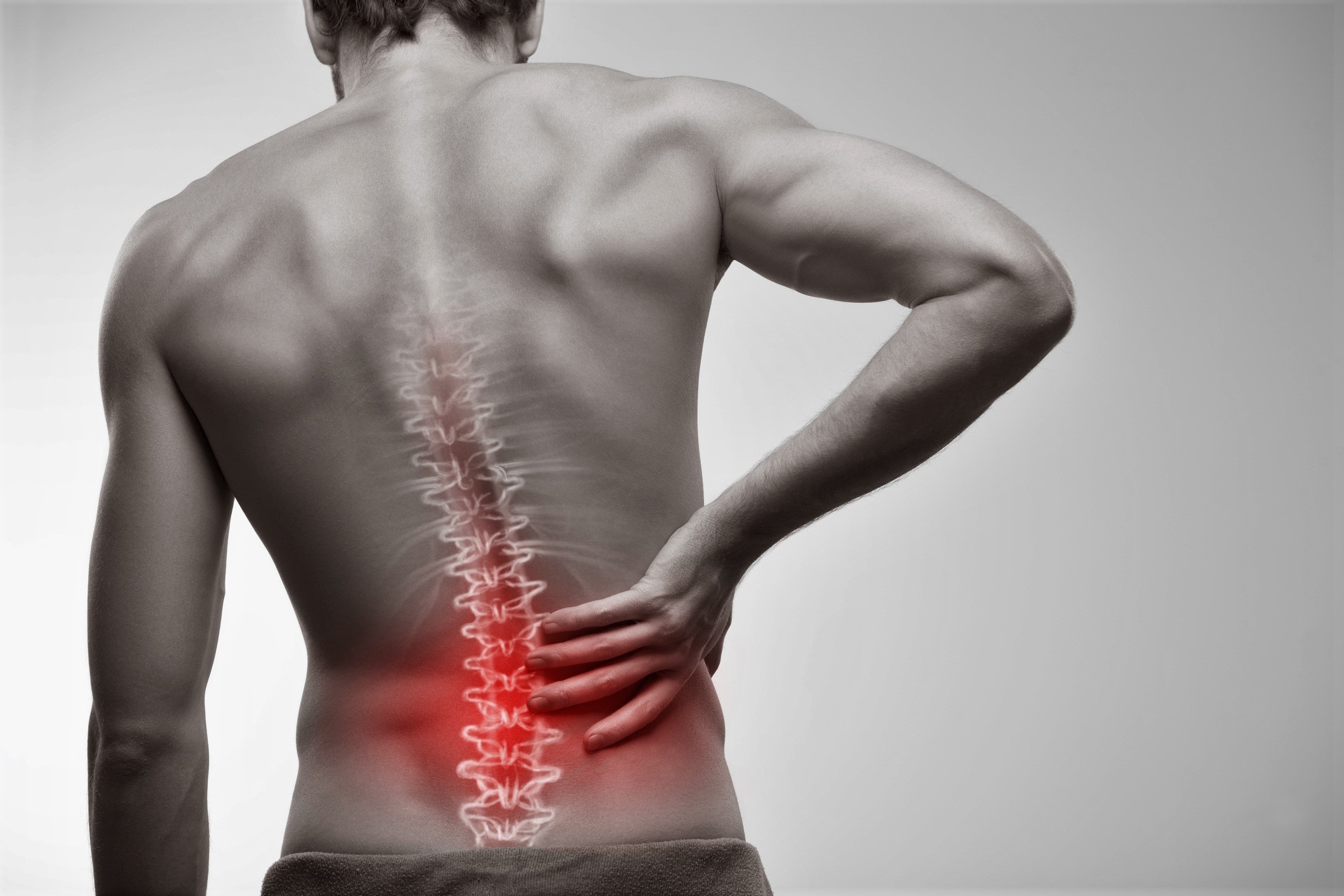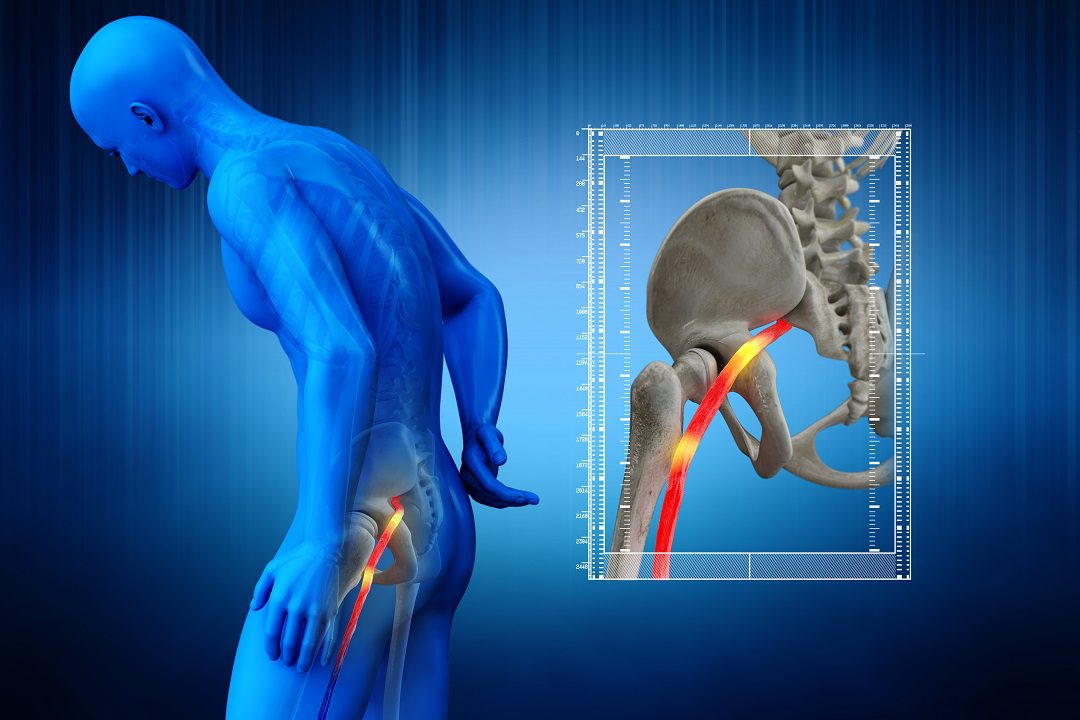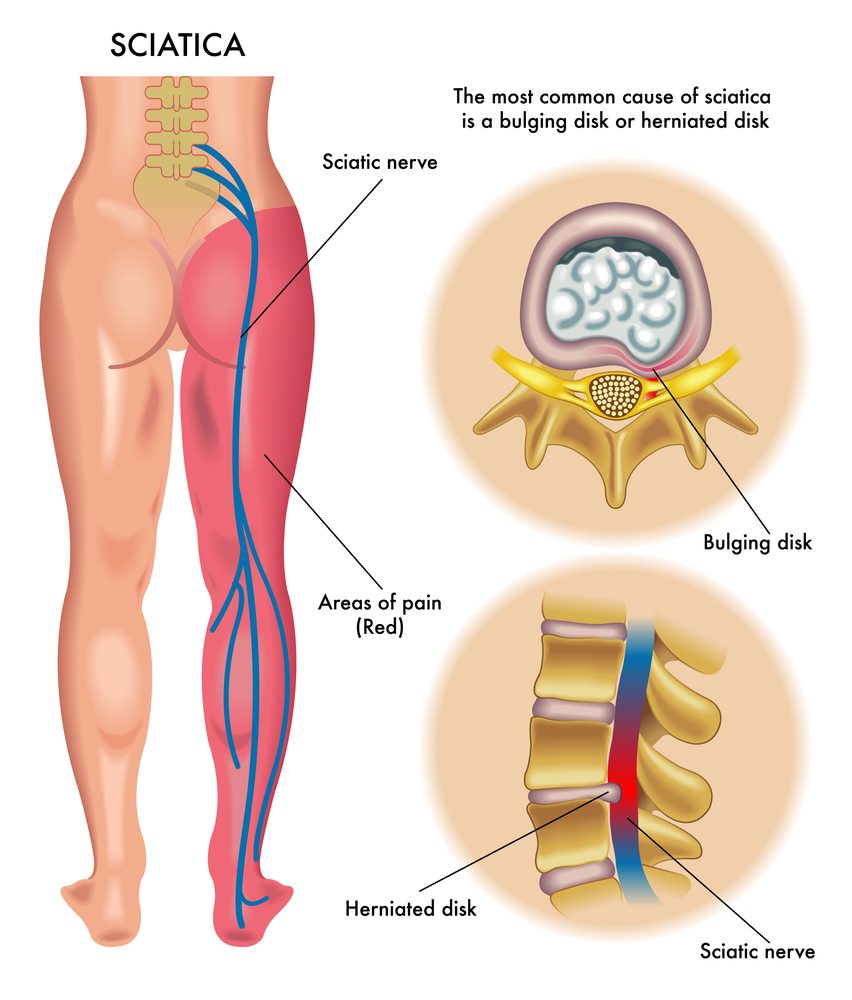Sciatica
Can Sciatica Cause Bowel Problems

Can Sciatica Cause Bowel Problems?
Sciatica is the term used to describe pain, tingling, numbness, or a prickling sensation running down the leg. It can be very debilitating and some people have even described it as the worst pain they have ever felt. This pain often occurs when something is put pressure on your sciatic nerve which runs from your lower spine down to your feet. What causes it? Can it cause bowel problems? Read more about it here.
Can Sciatica Cause Bowel Problems?
There is some evidence that sciatica can cause bowel problems. In particular, sciatica can cause constipation. This is because sciatic pain can often lead to people being less active, which can, in turn, lead to constipation. There are a few things that you can do to help address this issue, including drinking plenty of fluids, eating high-fiber foods, and exercising. It is also important to consult with a health care professional if you are experiencing any bowel problems related to your sciatica.
Sciatica Overview
An issue with sciatic nerve pain can cause pain to radiate down your legs along its path. The sciatic nerve branches out of your lower back, extending into the hips and buttocks. Most sciatica cases affect only one side of the body.
A bone spur on the spine, herniated disk, or narrowing of the spine can compress the sciatic nerve causing it to ache. The affected leg is often achy, painful, and numb.
Even though sciatica can cause severe pain, most cases of the condition resolve without surgery in a few weeks. Surgery might be recommended for patients with severe sciatica, especially if they have significant leg weakness or bladder or bowel changes.
Why Do People Get Sciatica?
Sciatica occurs when the sciatic nerve is compressed, usually by a herniated disc or overgrown bone in the spinal cord. There are several causes of sciatic nerve pain, including a herniated disc, bulging disc, Piriformis syndrome, tumor, and other conditions. Read about each cause below.
Herniation Disk
Sciatica is generally caused by a herniated disk in the spinal cord. In this condition, the sciatic nerve is compressed by discs pushed into the spinal canal. A disk rupture can result if the person experiences injury or excessive pain and weakens the ligaments that hold it together.
Bulging Disk
If the annulus of the disc remains intact, but the pouches push into the nerve, it is called a bulging disc. The pouch forms when the gel-like center of the disc ruptures, allowing it to ooze out. Bulging discs are usually caused by improper lifting of heavy objects.
The following conditions can also cause sciatica symptoms:
Piriformis syndrome refers to a problem with the piriformis muscle of the buttocks, located near the top of the hip joint, which causes pain and spasms. This may result in numbness and tingling along the back of the leg and foot because it is so close to the sciatic nerve.
An uncommon cause of sciatica is a tumor, a blood clot, or another condition in the lower spine. The symptoms of sciatica can also be caused by cauda equina syndrome, degenerative disc disease, lumbar spinal stenosis, and spondylolisthesis, among others.
Furthermore, alongside the variety of causes of sciatica, there are also a number of risk factors that can increase the likelihood of suffering from the condition.
How Do I Know if I Have Sciatica?
If you are experiencing any of the symptoms of sciatica, it is best to consult a health care professional. Some of the most common symptoms include pain, tingling, numbness, or a prickling sensation in the leg. The pain often occurs when something is putting pressure on your sciatic nerve, which runs from your lower spine down to your feet. While the cause of sciatica can vary from person to person, it is important to seek medical help if you are experiencing any of these symptoms.
How to Get Rid of Your Sciatica?
There are a few things that you can do to help get rid of your sciatica. First, it is important to consult with a health care professional to find out the root cause of your sciatica. Once you know what is causing your pain, you can begin to address it. There are a number of treatments for sciatica, including medication, physical therapy, and surgery. However, there are also a few things that you can do at home to help relieve pain. Some of these things include using a heating pad or ice pack, stretching, and exercising. It is also important to get plenty of rest and avoid sitting or standing for long periods of time.
Are There Any Home Remedies for Sciatica?
There are a few home remedies that you can try to help ease pain from sciatica. One is to use a heating pad or ice pack. You can also try stretching and exercising. It is also important to get plenty of rest and avoid sitting or standing for long periods of time. If your pain levels are too much for you to handle with just home remedies, you can opt for over-the-counter pain relievers.
Can Sciatica Be Prevented?
There are a few things that you can do to help prevent sciatica from occurring. A good place to start is by maintaining a healthy weight. You should also exercise regularly and stretch your muscles. It is also important to get plenty of rest and avoid sitting or standing for long periods of time. If you are experiencing any of the symptoms of sciatica, it is best to consult a health care professional.
What You Can Do to Prevent Sciatica
You can prevent sciatica or prevent it from reoccurring by exercising often, maintain proper posture, put less strain on your back when lifting.
Exercising Regularly – The key to maintaining a healthy back is increasing muscle strength especially the back muscles and core muscles. Sciatica affects the legs primarily, so muscle weakness is a common symptom. Sitting for prolonged periods can intensity leg and back pain especially if you’re obese or overweight since excess body weight can play a part in spinal changes that can lead to Sciatica.
Maintain good posture – Sit on the floor with your feet on the ground, use your armrests, and make sure your chairs offer you proper back support.
Move with care – When lifting heavy objects, bend at the knees and keep your back straight.
What Should You Do if You Experience Any of the Symptoms of Sciatica?
If you experience any of the symptoms of sciatica, it is important to consult a health care professional. The most common symptoms include pain, tingling, numbness, or a prickling sensation in the leg. The pain often occurs when something is putting pressure on your sciatic nerve, which runs from your lower spine down to your feet. While the cause of sciatica can vary from person to person, it is important to seek immediate medical attention if you experience excruciating pain accompanied by other medical conditions and other symptoms like sexual dysfunction or bowel problems.
Choosing the Right Time to See a Doctor
In most cases, mild sciatica resolves on its own over time. But if the pain persists, or if it gradually worsens, you should see a doctor.
All of these symptoms should be addressed by a medical professional immediately.
- Traumatic injury triggered symptoms.
- There is nausea, fever, or weight loss associated with sciatica.
- The leg may feel extremely weak or numb.
- Loss of bladder control.
- Inability to control bowel movements.
Takeaways
A person who suffers from Sciatica and experiences bowel movement problems can be a concern. Experts suggest that if you are experiencing bowel or bladder changes related to your sciatica, it is important to consult a health care professional for different treatment options. There are a few things that you can do to help address the issue, including eating high-fiber foods and exercising. It is also important to get plenty of rest and avoid sitting or standing for long periods of time.






















